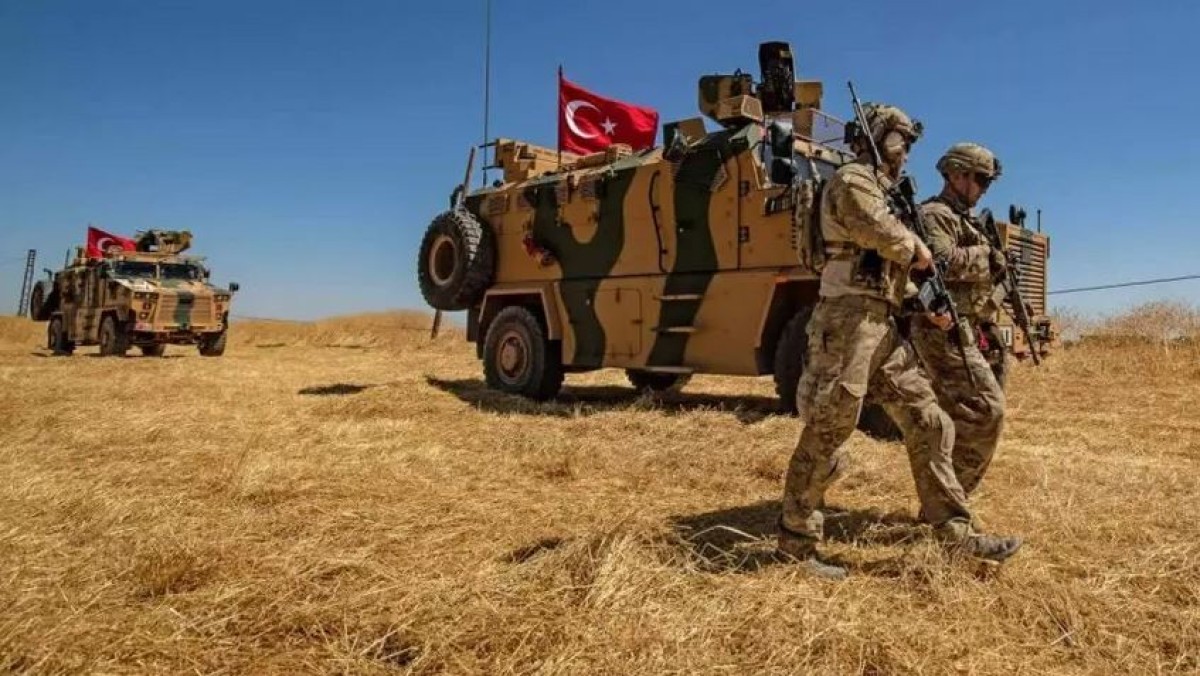 225
225
Turkey’s Aggression: A Tale of Occupation and Exploitation in Iraq
Turkey’s Aggression: A Tale of Occupation and Exploitation in Iraq
By: M. Sharifi
The past decade has witnessed an escalating tension between Iraq and Turkey, with the latter's military operations targeting the Kurdistan Workers' Party (PKK) on Iraqi soil. Turkey’s repeated incursions into Iraq, veiled under the guise of combating the PKK, have revealed a more insidious agenda driven by territorial expansion and economic greed.
The Pretext of PKK: A Convenient Cover
Turkey’s official narrative posits that the PKK poses a significant threat to its security, conducting cross-border operations against Turkish military and civilian targets. Ankara asserts that neither the Iraqi federal government nor the Kurdistan Regional Government (KRG) have been successful in eradicating PKK elements from the rugged tri-border area shared with Iran and Turkey. This purported failure has provided Turkey with a flimsy justification for establishing hundreds of military outposts and permanent bases within Iraq, with the tacit approval of the Kurdistan Democratic Party (KDP) under Massoud Barzani.
A New Wave of Turkish Military Aggression?
Turkey's expansive network of military bases in the Iraqi Kurdistan region has come at a tremendous cost to the local populace and environment. Turkish assaults have led to the depopulation of hundreds of villages, with numerous civilians either killed or injured. Baghdad has repeatedly denounced Turkey’s operations as acts of occupation, yet Ankara persists with its military campaigns. Recently, Turkish forces have intensified their activities, occupying dozens of villages in Dohuk province under the pretense of targeting PKK militants. Reports indicate that Turkish artillery and ground forces have forced numerous families to flee, further exacerbating the humanitarian crisis in the region.
Iraq’s Tepid Response and Its Underlying Causes
The Iraqi government's muted reaction to these incursions raises significant questions. One contributing factor is the security agreements between Baghdad and Ankara, permitting Turkey to pursue PKK elements within Iraqi borders. This agreement stems from a shared concern over the PKK’s activities, leading to a tacit acceptance of Turkey’s military actions. Furthermore, Ankara's expansionist ambitions have placed Iraq in a precarious position, where economic and water dependencies on Turkey impede a robust response. The KRG’s favorable relations with Turkey and its own conflicts with the PKK further dilute Baghdad’s stance, resulting in a fragmented and ineffective opposition to Turkey's aggressive maneuvers.
Erdogan’s Ulterior Motives: Beyond Security Concerns
Turkish President Recep Tayyip Erdogan's motivations extend far beyond the purported security threats posed by the PKK. Erdogan, bolstered by his recent electoral victory, seeks to consolidate power and suppress any opposition. By intensifying attacks on PKK positions in Iraq, Erdogan aims to weaken the group and compel a favorable peace agreement. However, this military aggression also serves Turkey’s broader economic and geopolitical interests. Control over northern Iraq’s water resources, energy supplies, and market access are critical objectives for Ankara. By asserting dominance in these areas, Turkey aims to bolster its influence and economic leverage over Iraq and its neighbors.
Conclusion: The Real Agenda Behind Turkey’s Actions
Turkey’s military operations in northern Iraq, while ostensibly targeting the PKK, are part of a larger strategy aimed at territorial expansion and economic exploitation. Under Erdogan’s leadership, Turkey has pursued an aggressive policy that disregards Iraqi sovereignty and inflicts severe harm on local communities. The international community must recognize these actions for what they are: a calculated effort to extend Turkish hegemony under the pretext of security concerns. It is imperative that Iraq, with the support of its allies, stands firm against this aggression to preserve its territorial integrity and protect its citizens from further harm
 225
225
Comment
Post a comment for this article